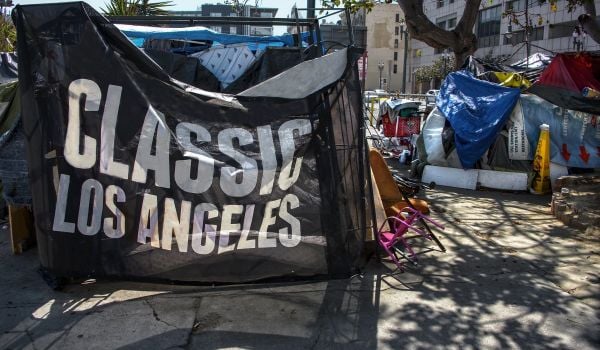Google’s Toronto Project Won’t Be That Affordable, Former City Planner Says
The Sidewalk Labs project to redevelop 12 acres of Toronto’s waterfront into a high-tech neighborhood will also include thousands of new residential units, 20 percent of which will be affordable. That’s an admirable goal, writes Jennifer Keesmaat, Toronto’s former chief planner, in an op-ed published this week — but not one Sidewalk Labs is likely to meet.
That’s because of how Sidewalk Labs (a subsidiary of Alphabet, Inc., Google’s parent company) and Toronto calculate affordability, Keesmaat writes. Sidewalk Labs has promised that 5 percent of its new units will be offered at 60 percent below market rate; 15 percent will be offered at below market rate, and an additional 20 percent will be offered at rates “affordable for middle-income households.” But, writes Keesmaat, “Even if Sidewalk’s second tier of affordability is on par with the market, these homes are wildly overpriced compared to Canadian wages.”
“In a real estate economy as hot as ours, affordability cannot depend on the market,” she adds. “The city of Toronto needs to make the definition match the reality.”
In Europe, Keesmaat writes, many cities require apartments built on private land to be split evenly between “social housing,” affordable housing and market-rate housing. The Toronto project is taking place on city-owned land and uses public money, which makes their proposed affordability split (and the city’s definition of affordability) “unacceptable,” Keesmaat writes.
Alphabet and Sidewalk Labs haven’t responded to the op-ed.
Brokers’ Fees Still Sky-High In New York, Despite Tenant Protections
In New York, the experience of apartment hunting is somehow more miserable than anywhere else, since the practice of using an apartment broker is widespread. Proponents of the practice say that brokers reduce the hassle of negotiating directly with landlords; opponents note that brokers charge hefty fees.
The package of new rent laws passed in June included a provision that capped apartment-hunting fees (such as application fees and “processing fees”) at $20, but now, the New York Times reports that tenants are being hit with broker fees in the hundreds of dollars anyway.
Landlords say the law is ambiguous; state regulators have not begun to clarify or enforce the laws.
One major source of confusion is that the law says landlords can’t collect fees in excess of $20. It doesn’t say anything about brokers — but brokers often act on behalf of landlords.
“This issue about the application fees, it just highlights ambiguities in the legislation,” Carl Hum, the general counsel for the Real Estate Board of New York, told the Times.
Some lawmakers aren’t buying it. “This deceptive practice is costing tenants money, and I would bet landlords are banking on the fact that not every tenant knows what the new law is,” Assemblywoman Linda B. Rosenthal told the paper.
“The intent clearly was not to have a tenant applicant pay more than $20, regardless of who it is they are paying the money to,” she added.
‘Notorious NIMBYs’ Sue Los Angeles Over Transit-Oriented Development
A group called Fix the City has sued Los Angeles over its Transit-Oriented Communities program, which allows density bonuses for developers providing affordable housing near transit, the LA Times reports.
The group alleges the program violates city and state laws. It was created under a ballot measure — Measure JJJ — that allowed density bonuses and other incentives and was billed as a way to increase good-paying construction jobs. Fix the City says that the program should have been approved by city council, and that it hasn’t resulted in better jobs for construction workers.
“We’re challenging a policy and practice that the city is using for all TOC projects,” Laura Lake, a board member with Fix the City, told the Times. “We want that halted and we want the planning department to start all over again with due process, public hearings and do what the voters approved.”
Since the Transit Oriented Communities program started in late 2017, developers have built or proposed 20,000 new homes under the program.
Fix the City was one of three organizations that in 2013 successfully killed a plan that would have allowed denser projects in Hollywood, and also killed a residential tower planned for Koreatown. Laura Raymond, head of the Alliance for Community Transit-Los Angeles, one of the groups that pushed for Measure JJJ, told the Times that Fix the City were “notorious NIMBYs … The only thing they’ve succeeded in doing is stalling progress towards a more sustainable and equitable city.”
This article is part of Backyard, a newsletter exploring scalable solutions to make housing fairer, more affordable and more environmentally sustainable. Subscribe to our weekly Backyard newsletter.


















